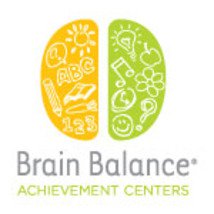
Sponsored by Brain Balance Achievement Center
Written by K. Kendall and C. Powell
Self-esteem is a complex facet ofbremotional health. It refers to an individual's perception of himself and it isbrever-evolving, based in part on a person's abilities and comparisons betweenbrthe individual and his peers. Children with learningbrdisabilities arebrparticularly susceptible to feelings of self-doubt and low self-esteem becausebrof the frustration that their challenges can cause. When a child isn’t sure ofbrhis own abilities, he is more likely to have low self-esteem. All children needbrplenty of positive reinforcement regardless of whether or not they have abrlearning disability. However, parents of children with learning issues shouldbrbe particularly alert to indicators of low self-esteem.
Relationship Development
One of the reasons why self-esteem is sobrimportant for children with learning disabilities is that it is integral for strong socialbrskills. Children with learning and/or behavioral challenges may already havebrtrouble interacting with their peers; low self-esteem can amplify thesebrchallenges. When parents help their youngsters build their self-esteem, thesebrchildren are much more likely to interact appropriately with their peers,brinitiate and maintain conversations, and learn how to make and keep friends.
Emotional Maturity
Research has shown that childrenbrwith positive views of themselves tend to be more emotionally mature. They tendbrto have better coping skills and they may be better equipped to handle strongbremotions. Emotional maturity is critical for conflict resolution skills andbrempathetic thinking.
Lifelong Success
Children with a positive self-imagebrhave a solid foundation for lifelong success. They learn to trust theirbrabilities and they learn that persistence pays off. For children with learningbrdisabilities, this is particularly important because they may need to workbrharder than their peers to master the same material.
Helping Children with LearningbrDisabilities Develop Self-Esteem
Children with learning disabilitiesbroften struggle with social and behavioral issues as a result. Learningbrdisabilities can adversely affect a child's self-esteem due to frustrationsbrover not being able to stay on track academically as compared to his peers.brParents can nurture a child's self-esteem in a number of ways, such as by beingbrresponsive to the child's questions and comments. Children of all ages needbrspecial one-on-one time with parents to let them know that they are loved.
Positive reinforcement is anotherbrpowerful tool in building a child's self-esteem. Parents can praise theirbrchildren for the things they do well and for making attempts to improve uponbrweaknesses. Additionally, children can learn to rely on their own abilitiesbrwhen they are given age-appropriate household responsibilities.
The learning disability experts at The BrainbrBalance Achievement Centers can help your youngster overcome the obstacles tobrhis academic and personal success. Often, parents of children who have comebrthrough our drug-free program remark that their child blossomed in self-esteembrand self-confidence. To learn more about our approach to resolving learningbrdisabilities call our Southlake location at (817) 416-9828.
Brain Balance Achievement Centers offer the Brain Balance Program ® in 54 nationwide locations. The Brain Balance Program® is an individualized and comprehensive approach to helping children with neurobehavioral and learning difficulties surmount their unique challenges.
This proprietary, non-medical program has been successful in helping thousands of kids reach their physical, social/behavioral health and academic potential. We work with children who suffer with ADD/ADHD, Dyslexia, Tourette's, Asperger's and Autism Spectrum Disorders.
